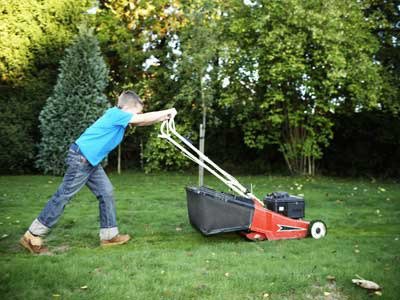It’s a tough job raising children. It’s a lot of work. The sooner you can get a bit of help to do it, the better. One of the ways you get some help is by having your child do some of the simple jobs around the house.
At first, to get this to work, you need to plan on investing some time and energy in teaching your child to be a helper. It isn’t enough to just say put your toys away, you need to teach her what that means. In order to be successful, you need to invest time and energy into teaching chores.
Don’t expect perfection. No one is perfect and that is especially true for young children when they do their chores. Have a relaxed approach to how your child does her chores. If you aren’t relaxed, you soon will be into a struggle. You are just trying to start a new thing with your child and you want her to be enthusiastic about her project.
Begin now. Maybe you feel your child is too young. But the reality is that she may be more capable than you think. Even little ones can help get the laundry together or help pick up toys. Your young child will learn by doing.
Keep praise an important component. Don’t wait until the chore is done. Praise and encourage your child while she is working on the chore. This is especially important when you are teaching chores to very young children. We all want to feel needed, even young children. Make sure your child feels she is contributing to the family as she begins doing chores.
Don’t be inconsistent. Elizabeth Pantley, author of “Kid Cooperation: How to Stop Yelling, Nagging, and Pleading and Get Kids to Cooperate,” emphasizes that if your kids aren’t expected to regularly follow through and do their chores, they might start putting chores off in the hope that someone else will do them.
Be specific about what you expect. Just saying, “Clean your room,” is very unclear to a young child. Instead, be specific. “Put your clothes away,” is better.
You may need to tell her exactly what you want done in the kitchen or how the toys should be put away. Take the time or make a list.
Go step by step on chores for your child. First, show her exactly what you want, then let her help you do it the next time, and then you can just supervise as she does the chore. Only then do you let her do it alone. It is worth taking this step by step because you want things done your way when she is done.
Hopefully she will then be able to do it on her own and you will know it is OK to let her do it by herself.
Age-appropriate chores
You need to coordinate chores with the age of your child. Here are some pointers on kids’ chores by age:
• Chores for children ages 2-3 — Put toys away, put clothes in hamper, dust (somewhat), pile books and magazines.
• Chores for children ages 4-5 — Any of the chores for younger children and empty wastebasket, clear table, make their bed, bring in newspaper, pull weeds, fix a bowl of cereal.
• Chores for children ages 6-7 — Any of the above chores and sort laundry, sweep floors, set and clear table, help make pack lunch, weeding.
• Chores for children ages 8-9 — Any of the chores for earlier ages, load dishwasher, vacuum, wash table after meals, peel vegetables, take pet for walk, put away groceries, help with dinner, put away laundry, sweep the garage or the patio.
• Chores for children ages 10 and older — Any of the previous chores and most of the chores you can do plus unload dishwasher, wash car, do laundry, fold laundry, clean bathroom, iron clothes, change bed sheets, cook simple meals.
Take the time you need to teach your child about chores and you both will be rewarded. Your child will learn to be a help and will feel involved in helping the household to run well. It will lessen the chores you have to do and it will make you happy.
Chores have a lot of value for your child and also for you.
Cynthia Martin is the founder of the First Teacher program and director of Parenting Matters Foundation. Reach her at pmf@olypen.com or at 681-2250.


